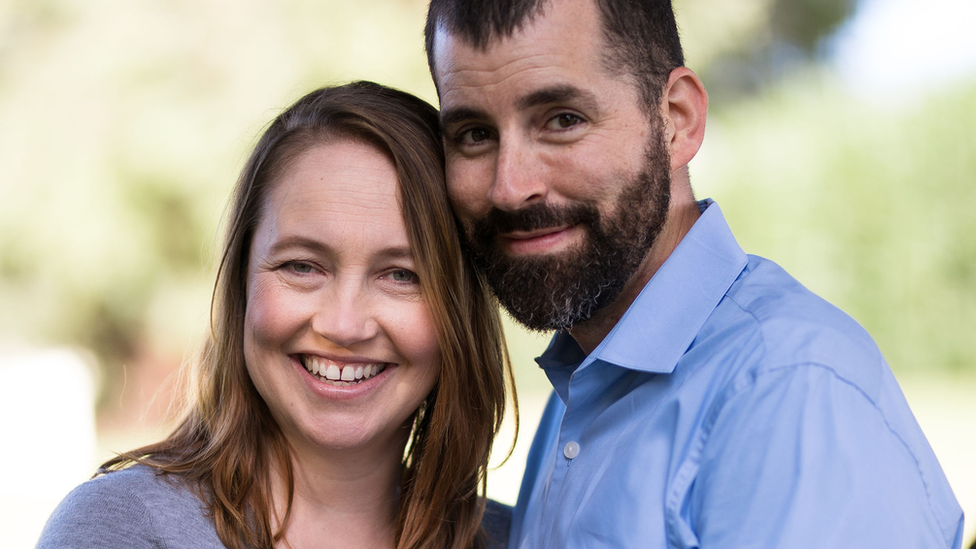Baby loss: The hospital helping bereaved families
- Published
Mum whose baby died speaks of pain of hearing others cry
Losing a baby is devastating enough, without having to go through this experience just feet away from people giving birth. A hospital in the Midlands now hopes to take action by building a safe haven for families enduring the loss of their babies.
Lynette Parkes' pregnancy had been plain sailing. The customary scans at 12 and 20 weeks had shown a healthy baby boy.
The home she shared with her husband Matt in Hagley, Worcestershire, was prepared for the child's arrival. The nursery was decorated, the crib ready and waiting for its first little occupant.
But at seven months, Lynette went to hospital after spotting a "pinprick" of blood.
Warning: This story contains a picture some people might find distressing
The couple expected to be told all was well and sent home again. But instead of the sonographer quickly picking up a heartbeat, there was silence.
A scan confirmed their worst fears; their baby had died.
"It completely floored us," said Lynette. "There was no indication there was anything wrong."
Distraught, the couple briefly went home to gather some belongings and returned to Birmingham Women's Hospital delivery unit.
The following day, Lynette gave birth to their boy, who they named James.
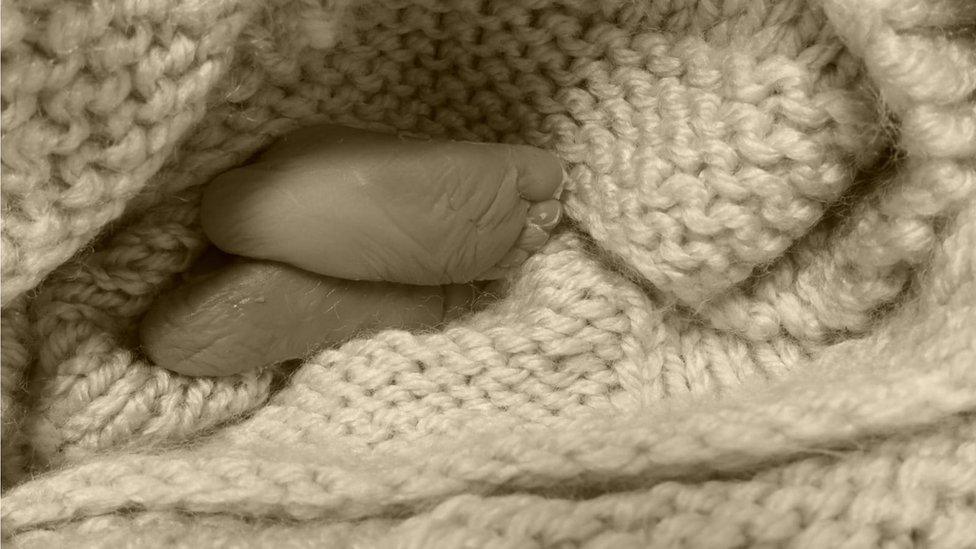
Like many families in this situation, Lynette and Matt were able to spend precious time with James to take pictures
The feeling of loss was incalculable. But Lynette and Matt were not prepared for what came next - having to cope with the sounds of babies being born around them in neighbouring rooms.
"When we were holding him, he looked so perfect that we didn't believe it," said Lynette. "It was like he was about to breathe, he could just open his eyes and start crying.
"And so when you're looking at your child's face like that and you hear the babies crying, it's like an echo of what should have been.
"It's like the cruellest joke you've ever heard. [I was thinking] open your eyes - you can do this as well, they've got to be wrong. It's harrowing."
As the first, overwhelming waves of grief came, they could not escape the cries of joy reverberating around the hospital.
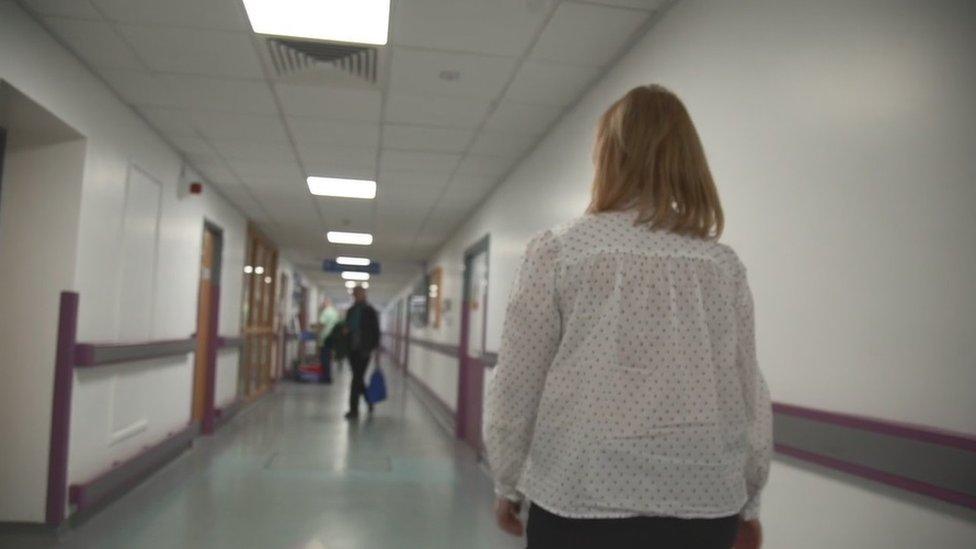
Every day, families endure baby loss in hospitals while healthy children are being born nearby
"If you left that room you're then surrounded by the sound of live babies, of families coming and going about to have their baby, leaving with their child," said Lynette.
"The pictures on the walls are of happy families, smiling babies - it's a constant reminder of what you're not going to get.
"Walk through the corridors, pass all the families, pass neonatal - where you you know that, yes, those babies are very sick but they're alive."
After leaving James for the final time, Lynette and Matt left by a back entrance.
"We felt like we were scurrying away, we were ashamed of what we weren't taking home; ashamed of what we've been through. I felt like such a failure."
Every day in the UK, women endure stillbirths in the same wards as those welcoming their healthy newborns into the world.
One in every 238 births in 2017 was a stillbirth, figures from the Office of National Statistics show.
In the same year, three in every 1,000 neonatal babies - those born after 24 weeks' gestation - died.
More than one in five pregnancies end in miscarriage, about a quarter of a million in the UK each year, according to the Miscarriage Association.
Among them are those that have to take place on hospital delivery suites.
Jo Tidman had excitedly told family friends about her second pregnancy when she passed the 12-week stage.
But at a scan three weeks later, after experiencing some spotting, she received the news she dreaded.
"We were quickly moved into a quiet room - passing expectant mothers waiting for scans - a toddler chatting to her mum about the baby in her tummy," she said.
"I felt sick. I always think of that quiet room as the 'death room' - where they take you to deliver bad news - a sterile area with a wipe-clean sofa and leaflets about miscarriage on the walls."
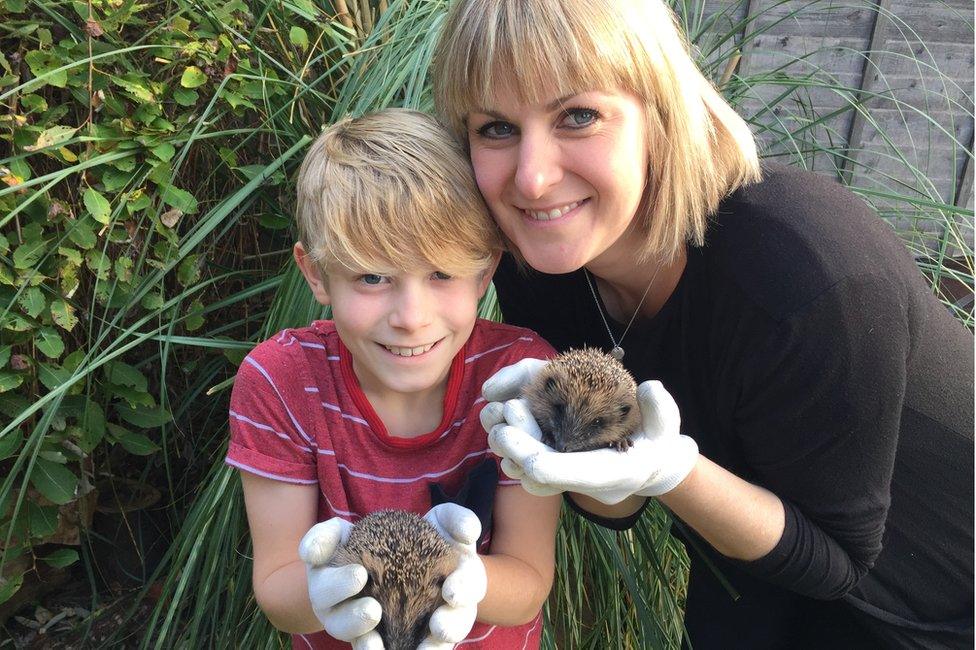
Jo's miscarriage happened when her son, Ben, was almost two
Jo, a BBC journalist in the West Midlands, had to take tablets to end the pregnancy. She was taken to a hospital in the Midlands when she miscarried her baby at home.
"When I got there the maternity unit was full, so I was left on a trolley and pushed into a medical supplies cupboard," she said.
"My dead baby was put in a plastic bag and left at the end of my bed. I was bleeding heavily but they were busy and so my husband and I were left alone for hours.
"We could hear the cries of newborn babies from the medical cupboard we were in and it felt like torture."
The bleak situation faced by these women has prompted Birmingham Women's Hospital to take action. It has begun fundraising for a standalone centre for families enduring the loss of their babies.
Woodland House would be built on the hospital's grounds, to help the 2,000 women and their families they see every year who have suffered miscarriage, failed IVF, stillbirth or neonatal death.
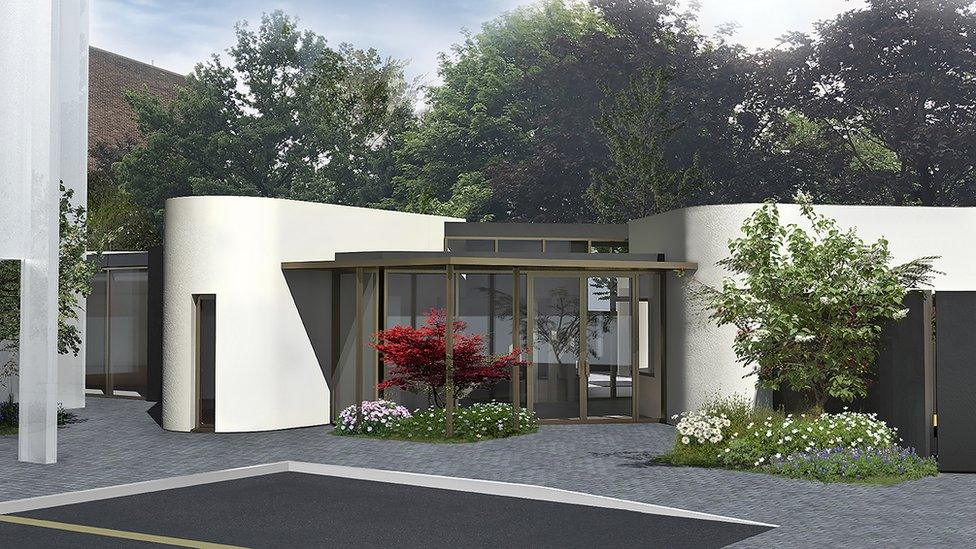
An artist's impression of how Woodland House might look
"Many of the places where we break the most awful news to families are not good enough and don't honour the horrible experience that our families are going through," Nicki Fitzmaurice, head of corporate nursing, said.
"We talk to families that are heartbroken in tiny rooms where not even the mum and dad can sit down because there's such little space. There might not even be a window.
"Outside you can hear the sound of babies crying and happy families, people have balloons, cards and there's lots of cheerfulness, and all you want to do is die a little bit inside.
"We want to change that."
A crowdfunding mission aims to raise £3.5m for Woodland House, which, if successful, will feature counselling rooms, a private garden, communal lounge for support groups and a family room.
It will also have a "sensitive mortuary" which the hospital says will allow "families the opportunity to spend time with their loved ones in comfort and serenity".
"Woodland is going to be about honouring loss," said Ms Fitzmaurice.
"It's going to be a safe haven, here at the hospital where when terrible things have happened to you - you've had a miscarriage, you've had a stillbirth baby or you've just lost your newborn baby - we're going to build a beautiful place where you can spend time."
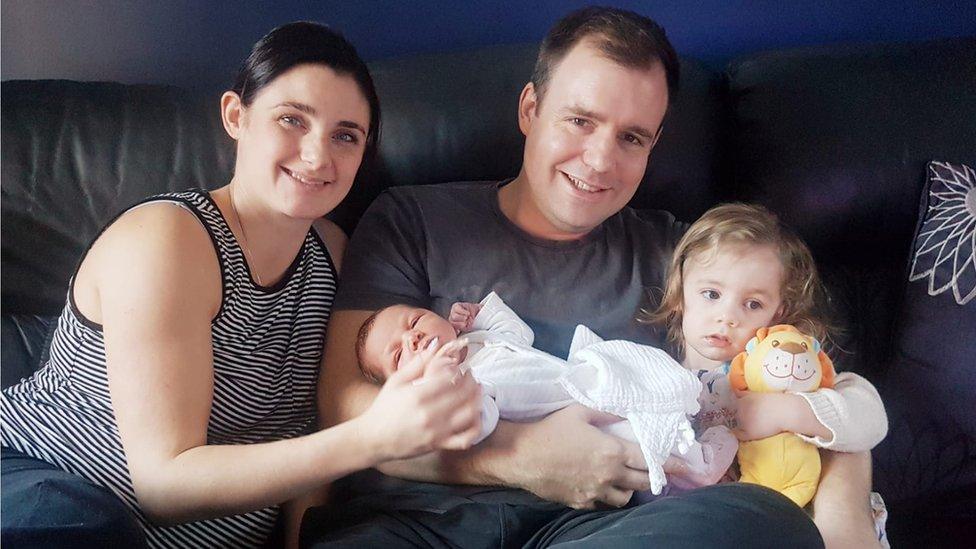
Lynette and Matt have gone on to have two more children after James
For Lynette and Matt, holding fundraising events for the new centre is a way of remembering their first little boy. They plan to start by holding a ball.
"I think every parent wants their child to have an impact in this world," said Lynette.
"By me doing this, I think that's how I'm doing it in his name - it's James having a positive impact in this world."

If you have been affected by issues raised in this story, the following organisations are on hand to help:
Sands - Stillbirth and neonatal death charity: 0808 164 3332 or helpline@sands.org.uk
Tommy's - miscarriage, stillbirth and premature birth: 0800 014 7800 or midwife@tommys.org
Miscarriage Association: 01924 200799 or info@miscarriageassociation.org.uk
The Lullaby Trust - Sudden infant death syndrome charity: 0808 802 6868 or support@lullabytrust.org.uk
- Published8 September 2018
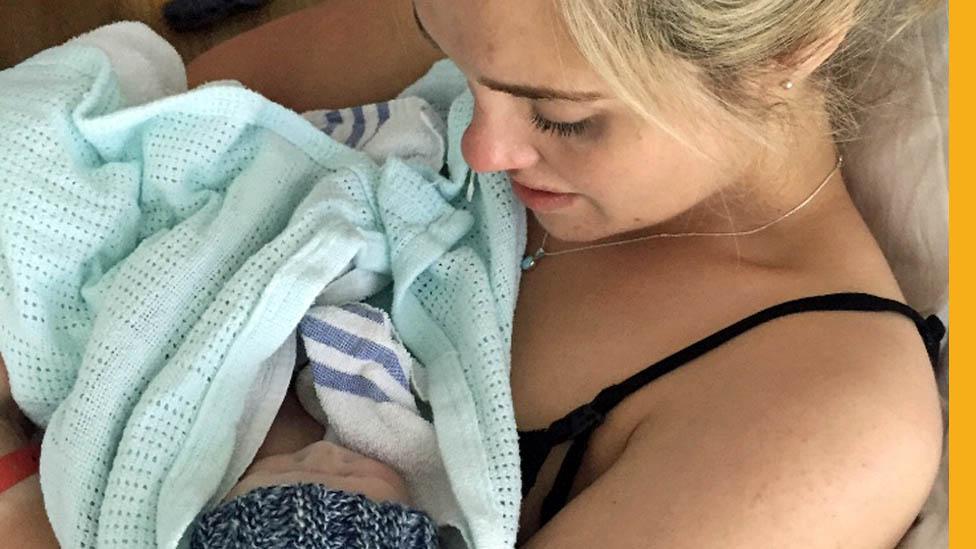
- Published14 October 2017
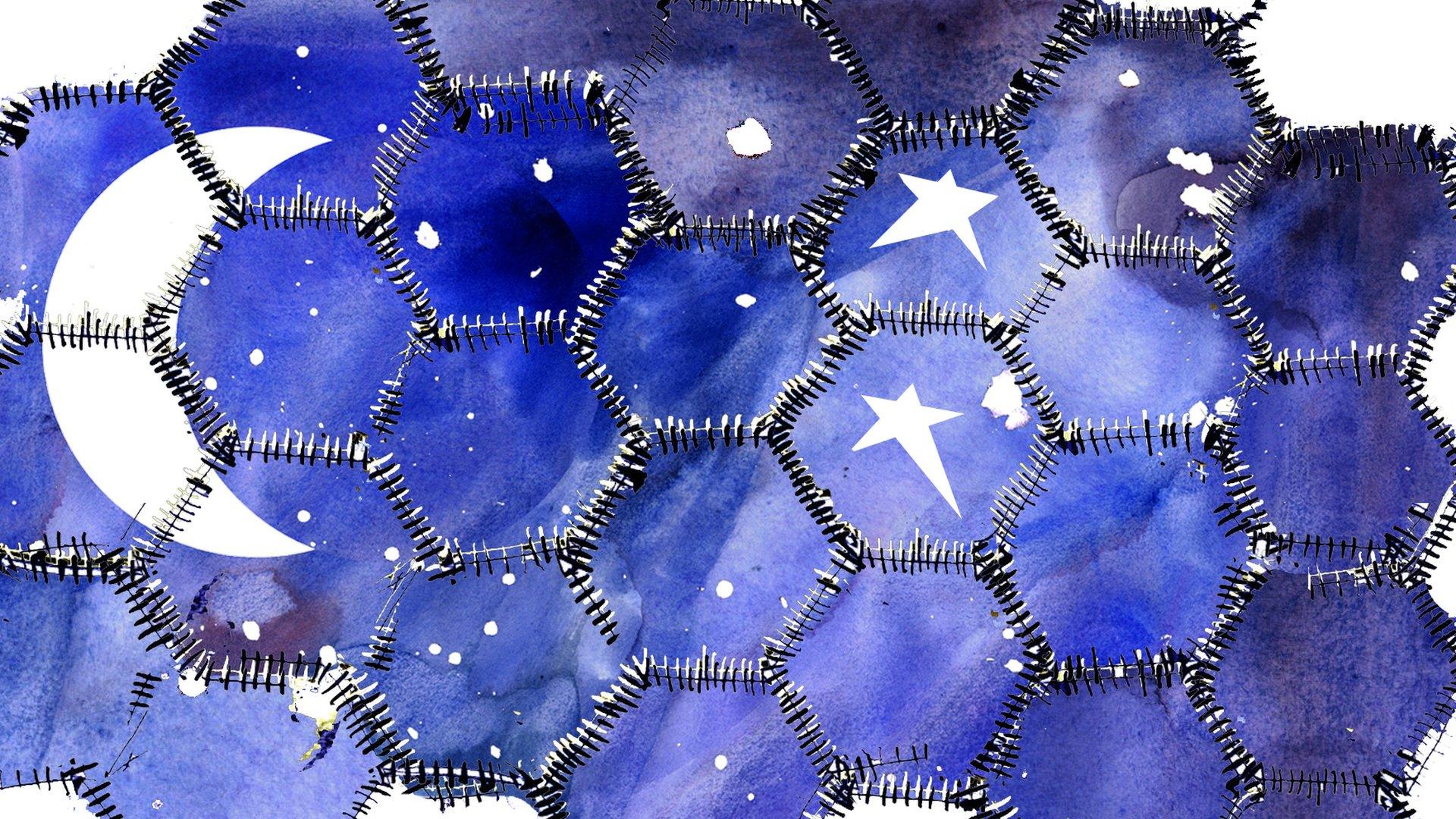
- Published5 January 2019
